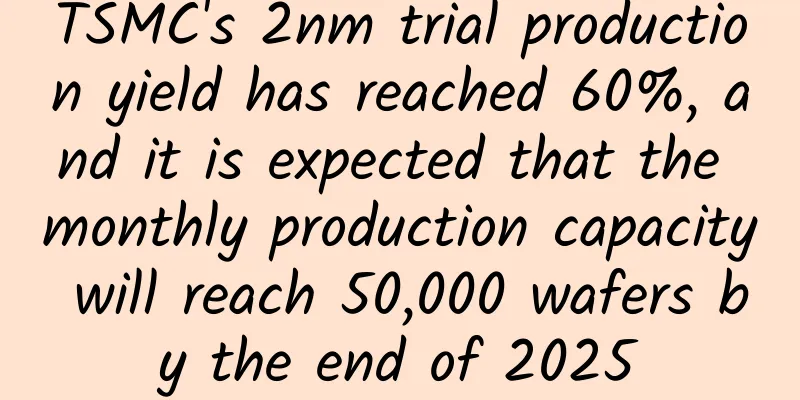TSMC's 2nm trial production yield has reached 60%, and it is expected that the monthly production capacity will reach 50,000 wafers by the end of 2025

|
TSMC's plan to quickly deliver the first 2nm wafers to lucrative customers remains uncertain, and it all depends on how quickly the semiconductor giant can increase production capacity. According to the last report mentioning this specific number, the company has reached 60% of trial production on the cutting-edge lithography technology, which is a major milestone for the foundry and also expands its lead over the competition. Now, one analyst believes that the pilot phase has made some progress toward full production since those production numbers were mentioned a few weeks ago. Although the exact output was not disclosed, analysts said that the data that TSMC's 2nm trial production yield reached 60% was reported three months ago. The first customer of TSMC's 2nm batch is likely to be Apple, which is why Tianfeng International Securities analyst Ming-Chi Kuo mentioned in his post on X that Apple's iPhone 18 series, scheduled to be launched in the second half of 2026, will adopt a chipset upgrade using the above-mentioned lithography technology. Previously, GF Securities analyst Jeff Pu predicted that the same chip (chronologically called A20) would be mass-produced on TSMC's 3nm "N3P" node, and he revised his statement, and now his views are consistent with Kuo's. It was previously reported that not all iPhone 18 models will use Apple's 2nm A-series SoC due to cost reasons, but it can be assumed that this prediction was made based on TSMC's previous progress in cutting-edge technology. Since the yield rate of 2nm trial production reached 60% in about three months, Kuo has reason to believe that the semiconductor manufacturer has improved these yields to a level sufficient to achieve production levels. It was revealed that at the current rate, TSMC will be able to produce 50,000 2nm wafers by the end of 2025. With the Baoshan and Kaohsiung plants fully operational, production could reach 80,000 wafers, which is enough to meet the needs of the 2nm process. TSMC has also explored ways to reduce the cost per wafer, which could encourage companies other than Apple to start placing orders. The company is said to be launching a "CyberShuttle" service in April, allowing customers to evaluate their chips on the same test wafer and reduce costs. It is hoped that this move will encourage more customers to join the 2nm trend and strengthen TSMC's control over the foundry business. |
Recommend
How to build a corporate mobile website? Which companies are good at mobile website construction?
How much does it cost to build a mobile website n...
Product promotion blind spot | Don’t waste your own advertising space
One problem that students who work in product ope...
How to use Alipay’s money-making red envelopes?
A few days ago, I pushed some tips on how to get ...
Is it expensive to develop a Suining mechanical equipment mini program? Suining Mechanical Equipment Mini Program Customization Cost
Is it expensive to develop a Suining mechanical e...
What kind of flowers did Chang Yu want?
Yesterday, Jay Chou's new song "The Grea...
How much does it cost to join a meat and poultry mini program in Hohhot?
What is the price for joining the Hohhot Meat and...
A comprehensive analysis of Pinduoduo’s “Get Cash Every Day” campaign!
Regarding Pinduoduo 's "Get Cash Every D...
Weird ways to "die" in games
In many video games, you will always encounter th...
Is 3D Touch being ignored by game developers just because there are too few iPhone 6s users?
For the iPhone 6S, which is known as "the on...
A brief analysis of the private domain traffic growth model!
Today, the reason why fission is so popular is th...
Youdao Postgraduate Entrance Examination Politics Video Course 2022
Youdao Postgraduate Entrance Examination Politics...
No data cable is required, mobile phones and computers can transfer files to each other, which is faster than QQ and WeChat file transfer
At work, we often use mobile phones and computers...
Build a brand with public relations thinking
I have wanted to talk about this topic for a long...
Chufengce City Public Account Xiaomiquan Video Course + Baidu Cloud Download with Disk
Chufengce City Public Account Xiaomiquan Video Co...
Advanced Operations | A new way to control traffic, with 4 cases, 10,000-word collector's edition
As we all know, traffic is a matter of life and d...









